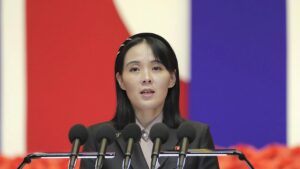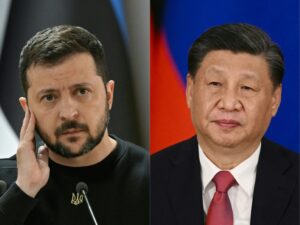
vRussia-Ukraine War, Belligerent China: Why India Needs to be Added to the G7 to Make it G8
Prime Minister Narendra Modi will attend the G7 Summit on Monday at the invitation of the German host. India has been a regular participant in this forum since the early 2000s, which reflects its greater interests in the global togetherness of the countries.
But this doesn’t always happen. The G7 is the richest and most advanced economic grouping in the world. Founded in the 1970s basically as a grouping by America because of its projection of power outside its reflection. But the world has changed significantly since the 1970s. Countries like Canada and Italy are not among the largest economies in the world today. India and China are not officially part of the G7, but are among the top seven economies in the world. Russia was once a part of G7+1 but stopped invited to post the anexation of Crimea in 2014.
India’s routine participation at the G7 Summit clearly reflects that the West requires its support to face the big challenges faced by the world, Foreign Minister Vinay Mohan Kwatra said last week, ahead of the visit of Prime Minister Modi to Germany.
Besides India, Germany also invited Argentina, Indonesia, Senegal and South Africa as guests for this year’s summit. The effort is to recognize South Global Democracy as his partner. Germany hosted the Summit in its capacity as chairman of the G7 for this year at the Schloss Elmau Sea Sea Resort in the Alpen Bavaria Mountains.
This year’s summit came in the background of the Russian-Ukraine War. Here once again, India’s position is different and nuanced from the US and Europe. India’s position is always very clear, asking for termination of hostility from the beginning of the conflict. But India also mostly did not get votes on the UN Security Council and the General Assembly. India does not want to be seen as a vote against Russia.
One point of pain is the purchase of sustainable Russian oil by India despite war. Previously, Indian External Affairs Minister S Jaisankar had shown how Europe bought more oil in one afternoon than India bought in a full month. But furthermore, the purchase of Indian Russian oil, which used to be around 2% before the war began, has now reached 6-7% in the last month that there is data available. India has struggled to explain that the source of energy is truly encouraged by its own national interests.
Whatever trading arrangements given by India in connection with the purchase of crude oil around the world are determined purely from the consideration of Indian energy security and there are no other considerations, “said Foreign Minister Kwatra.
I think that consideration is understood very well. I will even say valued throughout the country. I did not see any point to taking pressure on the problem. India has continued the oil trade and its purchases from anywhere we need to do it, “he said.
But there is another very good reason why the G7 must be expanded. Last year, England – Host – invited India, South Korea and Australia. This is a clear indication that the West views Indo-Pacific as the next conflict theater.
The West has been really surprised by the resurrection of China and its rather aggressive behavior outside its borders, especially in the maritime domain. Quad was formed to recognize exactly this concern. But so that Quad or G7 is considered serious by China – and now by Russia – it requires India.



